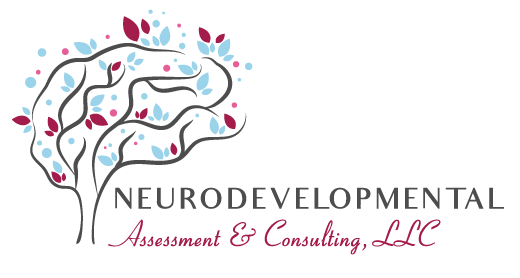When a child is struggling with learning, parents may wonder what to do. Usually, the first step is to get a comprehensive evaluation in order to identify the nature and severity of the child’s problem and determine what interventions are likely to be useful and helpful. Under the Child Find provision of IDEA, states are required to find and evaluate any student suspected of having a disability, even if the child attends private school or is homeschooled. Specifically, IDEA states that any child who needs special education and related services is to be “identified, located, and evaluated” (IDEA, Section 300.111). In many states, this requirement falls to the local school district to evaluate any child who may need special education and related services at public expense. In other words, the school district is ultimately responsible for ensuring that a child with special needs is identified and evaluated. However, some parents may choose to pursue a private evaluation, for some of the reasons below. In this article, I am hoping to clarify the main differences between evaluations conducted in the public education sphere and those in the private realm. (Disclaimer: I am not an attorney and nothing I have written should be construed as legal advice. The information presented is my opinion based on my experience and understanding of the regulations. Please refer to an educational attorney in your area for more specific guidance and information).
Choice of Evaluator
Typically, parents do not have a choice in who will evaluate their child in the public school environment. Most often, the evaluation is assigned to a specific school psychologist who is assigned to that child’s school or grade level (in larger districts, there are sometimes school psychologists who specialize in certain types of evaluations, such as autism spectrum disorders). In the private realm, parents are free to go to an evaluator of their choice, provided that evaluator has the appropriate credentials and experience to conduct an evaluation. Parents may seek out an evaluator with experience and expertise with the issue their child is facing, specialized knowledge and training (such as a neuropsychologist), or who is referred by family members or friends. Parents often have more access (or can request access, such as asking for a CV) to an evaluator’s experience and credentials in the private realm.
Evaluator Training, Experience, and Credentials
All school psychologists working in a public school district are required to meet certain minimum education and training standards, though these may vary slightly from state to state. For example, to become a certified school psychologist in Pennsylvania, the individual must have a master’s degree that covers specific educational content, a supervised internship of at least 1000 hours, and must pass both the basic skills Praxis exam, as well as obtain a minimum passing score on the School Psychology Praxis exam. Since these are minimum requirements, there are many school psychologists with higher levels of education and training or specialized training in specific areas. However, as noted above, parents often cannot choose which school psychologist in a district will be responsible for their child’s evaluation. At the same time, because the evaluation is conducted by a school district employee, families do not need to be concerned about whether the report will be accepted by the district.
In the private realm, states vary in terms of their requirements for who can conduct an educational evaluation. Continuing with our example of Pennsylvania, to practice privately a psychologist needs to have a doctoral degree (though some who were licensed in the 1980s and early 1990s were able to do so with master’s degrees), at least two years of supervised training and experience, and pass both a national and state exam. Parents and families looking for a neuropsychologist should look for someone who has specific training and expertise, beyond the doctoral level, in the study of brain-behavior relationships (in Pennsylvania, there is no separate license or credential for neuropsychologists; instead, they are licensed as psychologists). However, public school entities are not required to accept a private evaluation and can choose to have their school psychologist conduct an evaluation. If the outside evaluator is also certified as a school psychologist in Pennsylvania, then the district is required to acknowledge the evaluator’s report and conclusions (though they may still conduct their own evaluation). Thus, knowing the credentials of an outside evaluator is important and may affect whether the evaluation is accepted in the educational setting.
Comprehensiveness of Evaluation
Both public and private evaluations vary significantly in how comprehensive and thorough they are. Thus, careful choice of an evaluator and examination of his or her credentials and experience is key. In general, though, evaluators in private practice (especially those who are private pay) have lower caseloads than those who work in school districts. As a result, the private evaluator likely has more time to work with your child. Additionally, if the evaluator has advanced training and experience, such as a neuropsychologist, he or she may be able to evaluate areas of function that are not typically included in standard psychoeducational evaluations in the public school setting (including memory, executive functioning, attention). Private evaluators are not beholden to school district regulations, policies, or procedures regarding what is included in the evaluation. Thus, they may be able to evaluate the child in a deeper, more comprehensive manner.
At the same time, school district evaluations are typically multidisciplinary. If your child also needs a speech, occupational therapy, or physical therapy evaluation, these can be included in the school district psychoeducational report. In the private setting, these types of multidisciplinary practices are much more rare; a child may need to see several different providers who all do independent evaluations.
Diagnosis and Conclusions
Public school evaluations typically determine whether a child meets one of 13 educational classifications, which are defined by IDEA. In order to be eligible for special education, a child must meet the criteria for at least one of these categories and show an educational need. Thus, some children may have a diagnosed condition that does not affect education; this child would not meet the criteria to receive special education and related services. Often, school districts will not make diagnoses for conditions that are not defined by IDEA, such as attention-deficit/hyperactivity disorder (ADHD) or dyslexia; instead, they will refer to an outside provider to make these diagnoses. In the public school setting, classification decisions are also typically made by a multidisciplinary team, following the policies and procedures of the district. It is important to keep in mind that school districts often have limited resources and competing interests and goals; these factors can explicitly or implicitly impact the conclusions that are drawn and the recommendations that are made.
In the private realm, evaluations typically determine whether a child has a diagnosis, as defined by specific diagnostic criteria. Whether the diagnosis affects education and learning is irrelevant in this type of evaluation. For example, a child with a severe fear of dogs may be diagnosed with a specific phobia and require treatment to reduce his anxiety and fears. However, this diagnosis is unlikely to affect school functioning, especially if there are no dogs present in the school environment. At the same time, school and learning comprises a large portion of a child’s daily life; therefore, many diagnosed conditions have an educational impact. Private evaluators are not beholden to school district policies and procedures; therefore, their conclusions and recommendations are often viewed as more objective and more aligned with the child’s best interests. At the same time, private evaluations are sometimes criticized as being unrealistic for an educational environment. Nevertheless, an evaluator who is experienced in working with educational settings and has a good understanding of the school environment can usually make recommendations that are relevant, applicable, and flexible enough to be implemented in the school setting.
Timeline of the Evaluation
IDEA regulations require that school district evaluations are completed with 60 days. States vary on whether the 60 days are counted as 60 school days or 60 calendar days and whether summers count toward the 60 day timeline. In any event, school districts are legally required to complete the evaluation under specific timeline guidelines.
Private evaluators vary significantly in their availability. Some evaluators may have immediate openings, while others may be scheduling out several weeks or months or even have a waiting list. Private evaluators are not required to follow a specific timeline; therefore, it is important to inquire about a private evaluator’s availability and typical report turnaround time.
Cost
Evaluations conducted by the public school entity are done at no cost to the family. In contrast, private evaluations can be costly, sometimes up to several thousand dollars. Many evaluators do not accept or participate in insurance for these evaluations; in fact, most medical insurers will not cover testing for primarily educational purposes, stating that this is an educational service that should be provided by the educational entity, not a medical service that should be covered by health insurance. At the same time, some families are approved for an Independent Educational Evaluation (IEE), which is a private evaluation conducted at public expense (typically, the school district contracts with the private evaluator and pays him or her directly). Finally, some families are able to request reimbursement from the school district for private evaluations that they had done, especially if that evaluation was done because the school district evaluation was not done, was inadequate, or did not identify conditions or learning issues that should have been identified and addressed.

